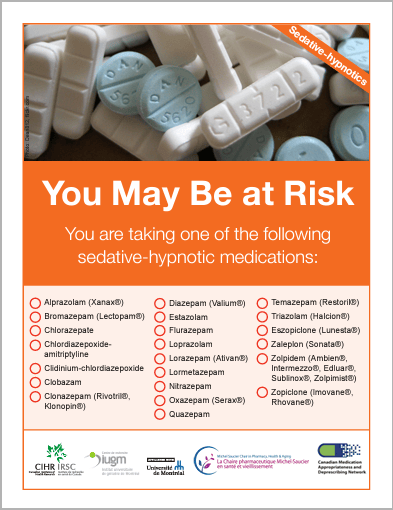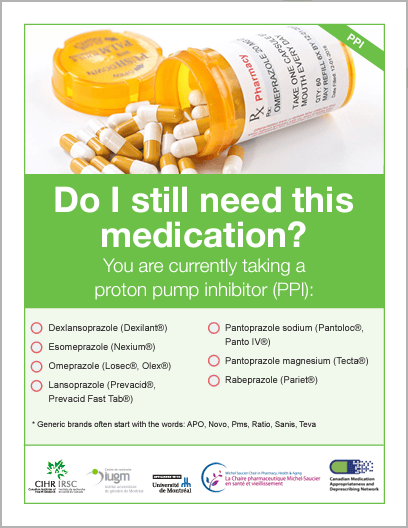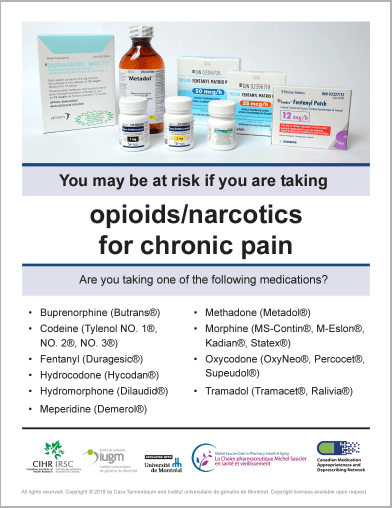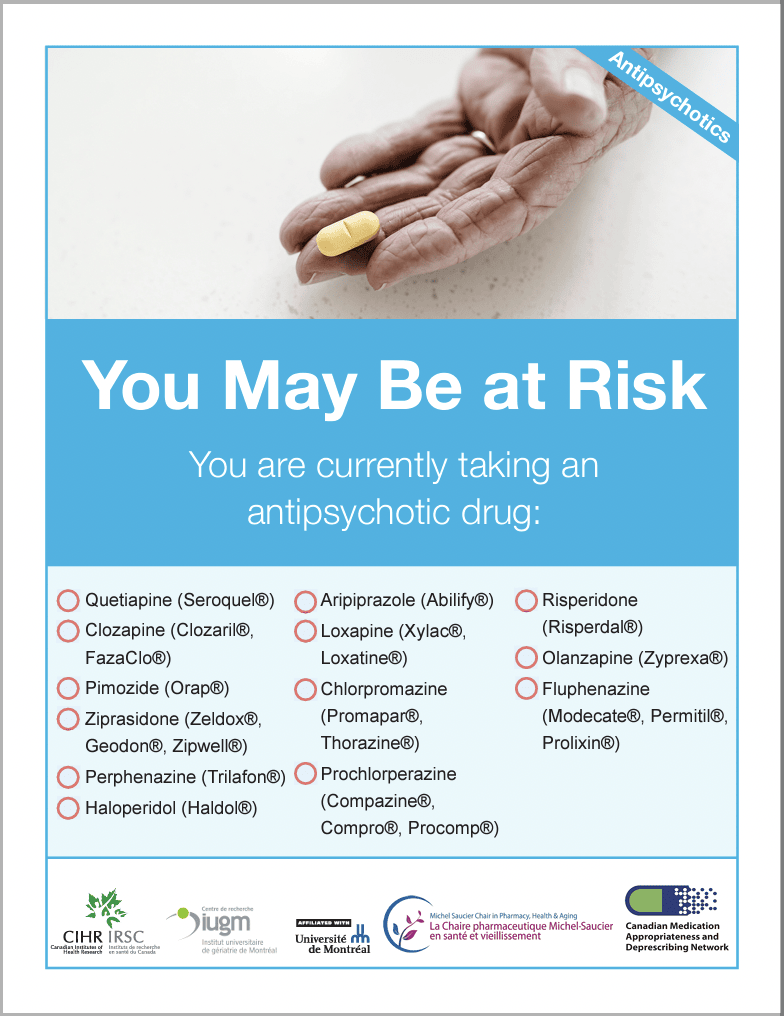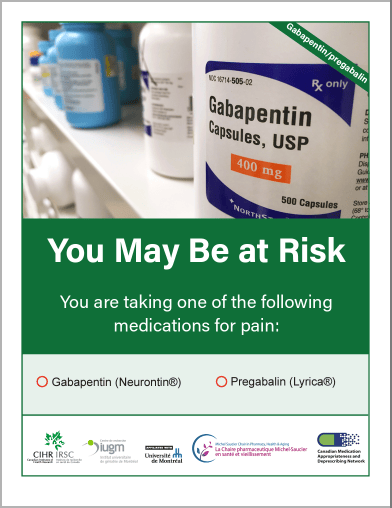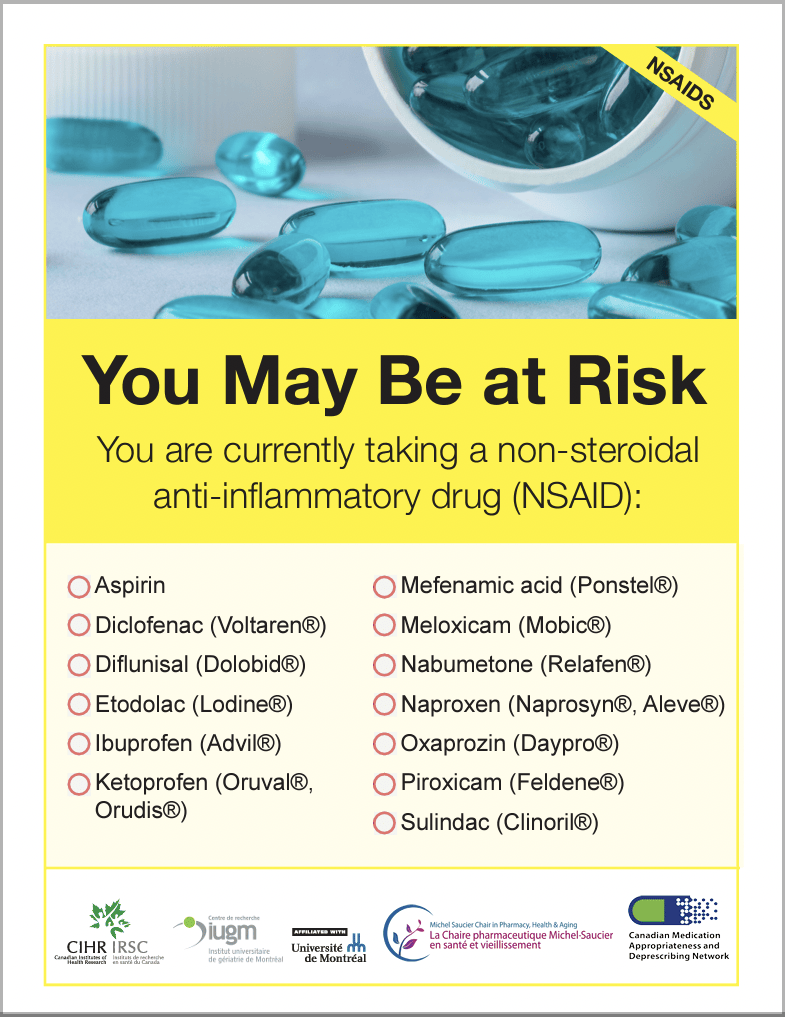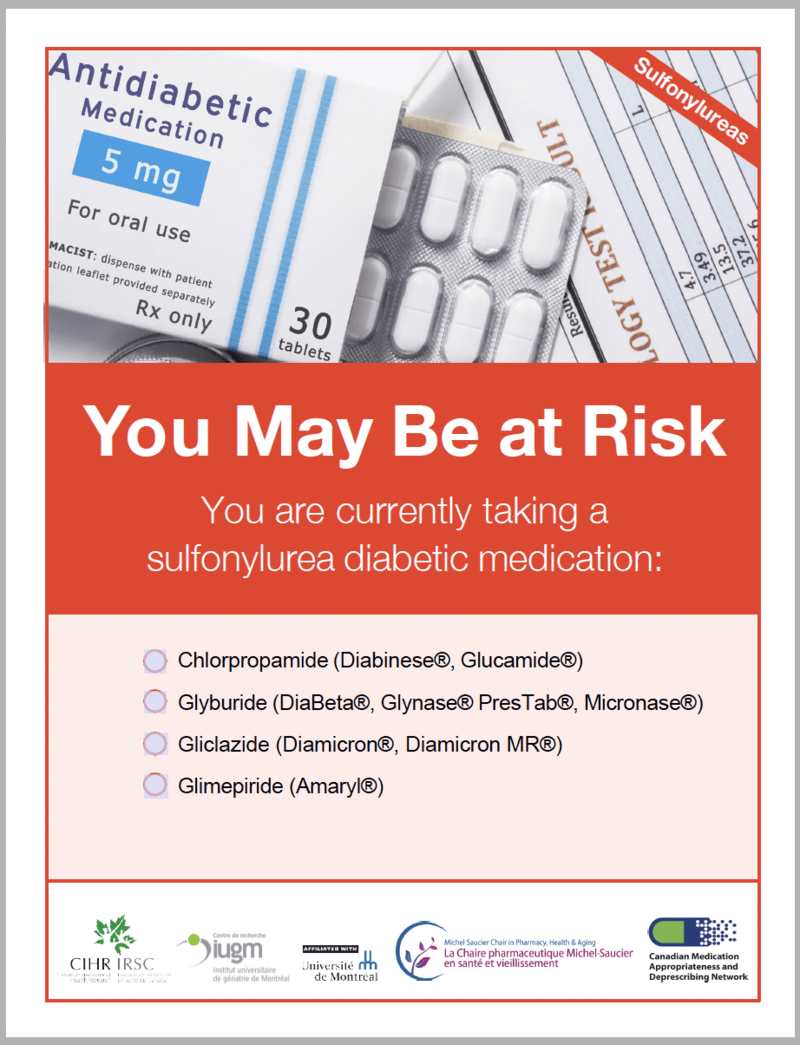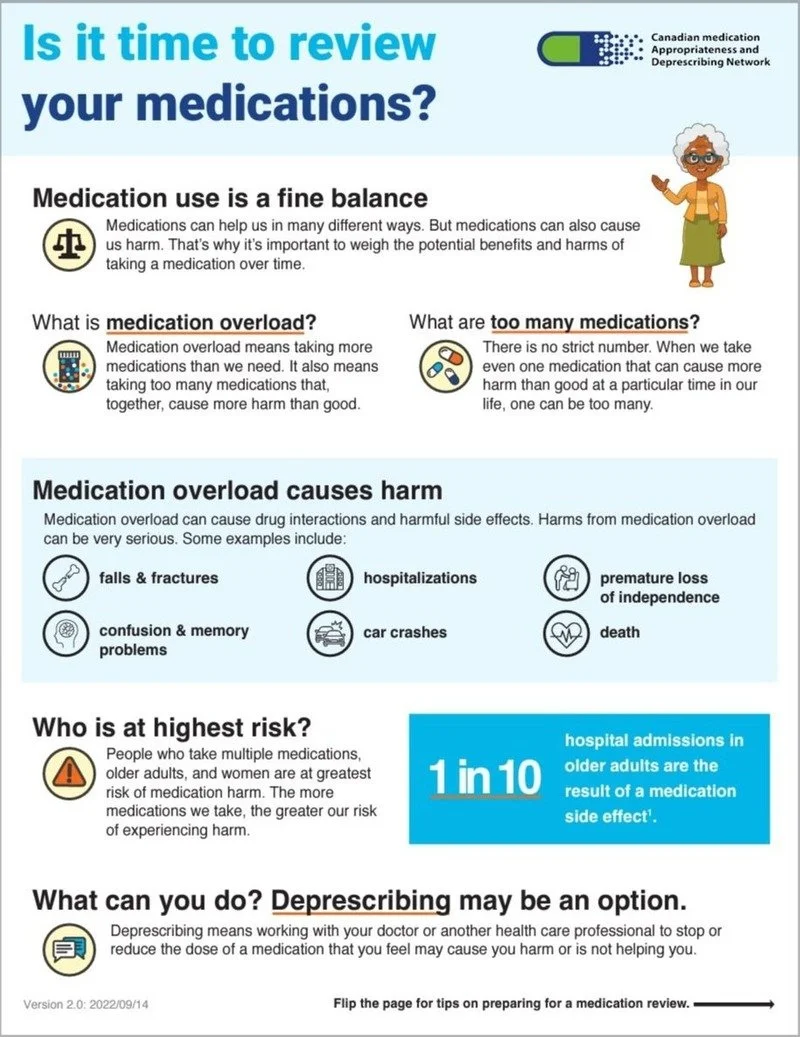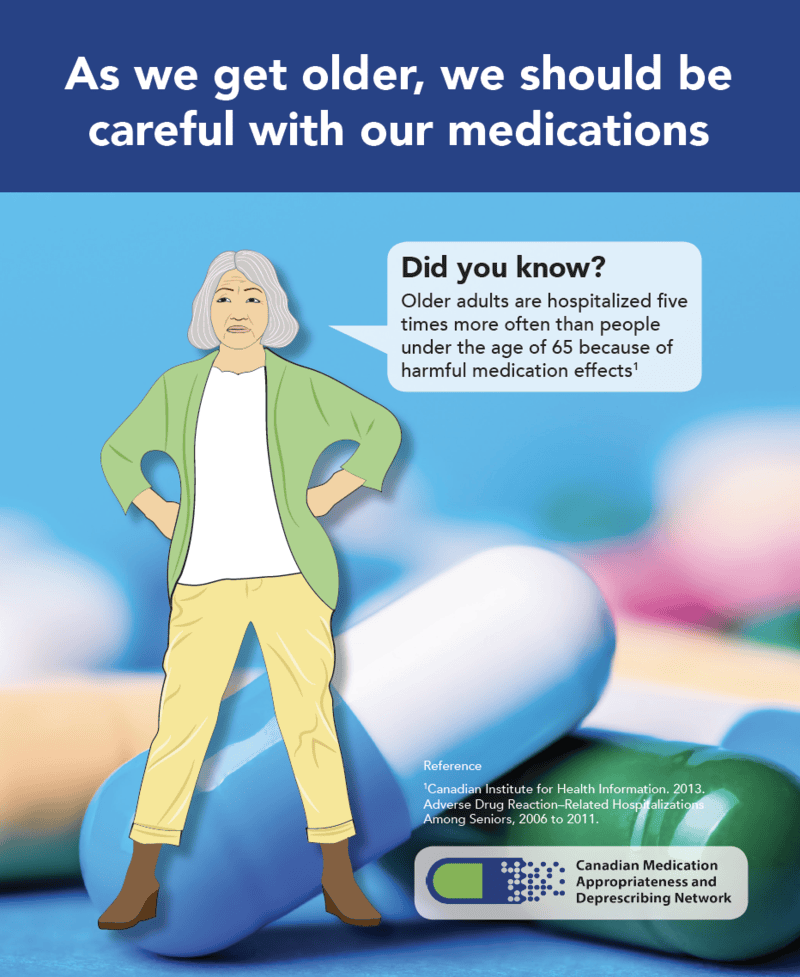Patient handouts
The following resources will help you communicate with your patients on the importance of deprescribing - and why it is an essential component of appropriate prescribing!
Some of these brochures have been translated to languages other than English and French.
Patient handouts on specific medications (EMPOWER brochures)
These brochures were created to inform and empower people about certain types of potentially inappropriate medications. Did you know that over 25% of community-dwelling older adults who read the EMPOWER brochure on sedative-hypnotics stopped their medications with the help of their health care provider? Click here to read trial published in JAMA.
Click on the links below to see the brochures and print them:
Sleeping pills and anti-anxiety medication such as lorazepam (Ativan®), oxazepam (Serax®), zopiclone (Imovane®) or zolpidem (Sublinox®).
Stomach pills for acid reflux such as pantoprazole (Pantoloc®), lansoprazole (Prevacid®), omeprazole (Losec®) or dexlansoprazole (Dexilant®)
Opioids for chronic non-cancer pain such as morphine (Statex®, M-Eslon®) or oxycodone (Oxyneo®, Percocet®)
Medications for allergies and itchiness (First-generation antihistamines) such as diphenhydramine (Benadryl®)
Antipsychotic medication for sleep or for symptoms of dementia (e.g. quetiapine (Seroquel®) or risperidone (Risperdal®))
Gabapentinoids medications for chronic pain, such as pregabalin (Lyrica®) or gabapentin (Neurontin®)
Anti-inflammatory medications such as ibuprofen (Advil®) or naproxen (Aleve®)
Medications for diabetes such as glyburide (DiaBeta®)
How to get a good night's sleep without medication
This brochure provides tips and techniques for a good night's sleep without resorting to sleeping pills.
Also see this website which contains information to help people manage insomnia.
Deprescribing handouts for patients
Having trouble communicating the need to deprescribe with your patients?
Our deprescribing infographics provide great conversation starters on the importance of appropriate medication management.
Brochure about how medications affect us differently as we age
This pamphlet describes physiological changes associated with aging and how these have an impact on medications’ effects.
Click here to download the brochure.
Infographic about Appropriate Use of Medications in Canada
Download this infographic to learn about potentially inappropriate medications and how they affect people across Canada.


